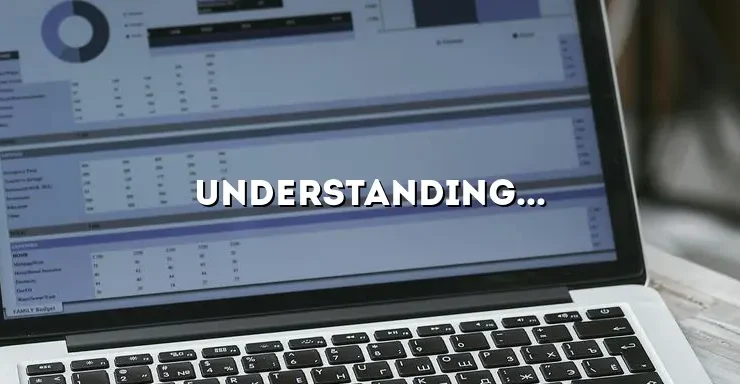
In today’s fast-paced and ever-changing world, the need for robust insurance coverage has become increasingly important. Whether you are an individual, a small business owner, or a large corporation, having the right insurance solutions in place is crucial to protecting your assets and mitigating potential risks.
Integrated insurance solutions offer a holistic approach to insurance, providing a comprehensive range of coverage options tailored to meet the unique needs of each client. From property and casualty insurance to employee benefits and risk management, integrated insurance solutions provide a one-stop-shop for all your insurance needs.
Understanding Integrated Insurance Solutions
When it comes to insurance, integrated insurance solutions go beyond the traditional concept of single policies and offer a more comprehensive approach. Integrated insurance solutions are designed to provide a complete package of coverage options, addressing various aspects of risk management and asset protection.
Integrated insurance solutions involve the integration of different types of insurance policies, such as property and casualty insurance, liability insurance, cyber insurance, and more. This approach ensures that all potential risks are covered, providing a comprehensive safety net for your assets and financial well-being.
Advantages of Integrated Insurance Solutions
Opting for integrated insurance solutions comes with several advantages. Firstly, it offers convenience and simplicity. Instead of dealing with multiple insurance policies and providers, integrated solutions provide a single point of contact for all your insurance needs, streamlining the process and saving you time and effort.
Secondly, integrated insurance solutions can result in cost savings. By bundling multiple policies together, insurance providers often offer discounted rates and premiums. This can lead to significant savings compared to purchasing individual policies separately.
Another advantage of integrated insurance solutions is the improved risk management they provide. With a comprehensive package of coverage options, you can effectively mitigate risks and protect your assets from a wide range of potential threats. Integrated solutions also allow for better coordination and alignment of coverage, ensuring there are no gaps or overlaps in your insurance policies.
Types of Integrated Insurance Coverage
Integrated insurance solutions encompass a wide range of coverage options. Here are some of the most common types of integrated insurance coverage:
Property and Casualty Insurance
Property and casualty insurance provides coverage for physical assets, such as buildings, equipment, and inventory, against perils like fire, theft, and natural disasters. This type of coverage is essential for businesses and individuals alike, as it protects valuable assets from unforeseen events.
Liability Insurance
Liability insurance protects individuals and businesses from legal claims and financial losses resulting from bodily injury or property damage caused by their actions or products. It provides coverage for legal defense costs and potential settlements, ensuring that you are protected in the event of a lawsuit.
Cyber Insurance
In today’s digital age, cyber insurance has become increasingly important. It provides coverage for losses and damages resulting from cyberattacks, data breaches, and other cyber threats. Cyber insurance helps businesses and individuals recover from financial losses and reputational damage caused by cyber incidents.
Employee Benefits
Integrated insurance solutions also include employee benefits, such as health insurance, life insurance, and disability insurance. These benefits not only attract and retain top talent but also provide financial security and peace of mind for employees and their families.
Customizing Integrated Insurance Solutions
One of the key advantages of integrated insurance solutions is their ability to be customized to meet specific requirements. Here’s how the customization process typically works:
Risk Assessment
The first step in customizing integrated insurance solutions is conducting a thorough risk assessment. This involves identifying and analyzing the potential risks specific to your industry, location, and business operations. By understanding your unique risk profile, insurance providers can tailor coverage options to address your specific needs.
Policy Selection
Based on the risk assessment, insurance providers will present you with a range of policy options that align with your risk profile. This may include different coverage limits, deductibles, and additional endorsements or riders. It’s important to carefully review and compare these options to ensure they adequately address your specific risks.
Ongoing Review and Adjustment
As your business evolves and your risk profile changes, it’s crucial to regularly review and adjust your integrated insurance solutions. This may involve adding or removing coverage, increasing or decreasing coverage limits, or adjusting deductibles. By staying proactive and keeping your insurance policies up to date, you can ensure that your coverage remains aligned with your evolving needs.
Finding the Right Insurance Provider
Choosing the right insurance provider is essential to the effectiveness and reliability of your integrated insurance solutions. Here are some key considerations when selecting an insurance provider:
Experience and Expertise
Look for insurance providers with extensive experience and expertise in integrated insurance solutions. They should have a deep understanding of different industries, risk profiles, and coverage options. A provider with specialized knowledge can offer valuable insights and guidance tailored to your specific needs.
Financial Stability
Insurance is a long-term commitment, so it’s important to choose a provider with strong financial stability. Check the provider’s financial ratings and stability to ensure they have the resources to fulfill their obligations and pay claims when needed.
Customer Service and Claims Handling
Consider the quality of customer service and claims handling offered by the insurance provider. A reliable provider should have a responsive and supportive customer service team, as well as a streamlined claims process. This ensures that you receive prompt assistance and fair treatment in the event of a claim.
Case Studies: Integrated Insurance Success Stories
Real-life case studies can provide valuable insights into the effectiveness of integrated insurance solutions. Here are a few success stories showcasing how businesses and individuals have benefited:
Case Study 1: Protecting a Manufacturing Business
A manufacturing business faced the risk of equipment breakdown, which could result in costly production delays and financial losses. By opting for integrated insurance solutions that included property and casualty coverage, the business was able to protect its machinery and inventory against breakdowns, ensuring smooth operations and minimizing potential losses.
Case Study 2: Safeguarding Against Cyber Threats
A small e-commerce business recognized the increasing prevalence of cyber threats and the potential impact on its customers’ data and its reputation. By investing in integrated insurance solutions that included cyber insurance, the business was able to mitigate the financial and reputational risks associated with cyberattacks. In the event of a data breach, the business had coverage for legal expenses, customer notification, and credit monitoring services.
Case Study 3: Ensuring Employee Well-being
A company wanted to attract and retain top talent by offering comprehensive employee benefits. By opting for integrated insurance solutions that included health insurance, life insurance, and disability insurance, the company provided financial security and peace of mind to its employees. This helped improve employee morale, productivity, and loyalty.
The Future of Integrated Insurance Solutions
As the insurance industry continues to evolve, integrated insurance solutions are expected to play a prominent role in managing risks. Here are some trends and innovations shaping the future of integrated insurance:
Technological Advancements
Advancements in technology, such as artificial intelligence and big data analytics, are revolutionizing the insurance industry. These technologies enable insurance providers to better assess risks, customize coverage, and streamline claims processes. Integrated insurance solutions will continue to leverage technology to enhance efficiency and effectiveness.
Emerging Risks
As the world changes, new risks emerge. Integrated insurance solutions will need to adapt to address these evolving risks. This includes emerging threats like climate change, cybersecurity, and pandemics. Insurance providers will develop new coverage options and risk management strategies to meet the challenges posed by these emerging risks.
Collaboration and Partnerships
The insurance industry is increasingly recognizing the value of collaboration and partnerships. Integrated insurance solutions may involve collaboration between insurance providers, brokers, and technology companies to offer comprehensive and innovative coverage options. These partnerships will foster creativity and enable the development of cutting-edge solutions.
In conclusion, integrated insurance solutions offer a comprehensive and tailored approach to protecting your assets and managing risks. By understanding the benefits, types of coverage available, and the process of customization, you can make informed decisions to safeguard your business or personal interests. With the right insurance provider and a proactive mindset, integrated insurance solutions can provide the peace of mind you need in an ever-changing world.
Remember, protecting your assets is not a luxury but a necessity. Invest in integrated insurance solutions today to secure a brighter and more secure future.






